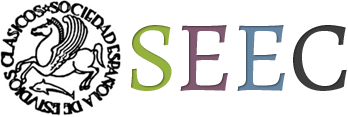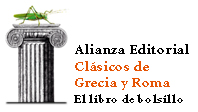Registro en XVI congreso de la SEEC
<–Volver al listado de participantes
Datos personales
- Nombre*
- Juan Eugenio
- Apellidos*
- Briceño Villalobos
- Email*
- juanebri AT ucm.es
- Filiación
- Universidad Complutense de Madrid
- Dirección*
- Avenida del Manzanares 44, 6º A
- Localidad*
- Madrid
- Provincia*
- Madrid
- Código Postal*
- 28011
- ¿Es socio de la SEEC?*
- No
- ¿Participa interviniendo en una sesión?*
- Sí
- Indique el tipo de intervención*
- Comunicación
- Sección en que propone su intervención
- Indoeuropeo y Paleohispanística
- Título de la comunicación o cartel
- On the instrumental nature of Gr. οὐκί
- Resumen de la comunicación o cartel
- Cogwill (1960)’s reconstruction *ne-h2óyu-kwid for Gr. οὐκ and Arm. oč‘ –later on, also extended to Alb. as by Klingenschmitt (1994) and Joseph (2002)– has enjoyed general acceptance in view of the typological plausibility of a adnominal reinforcement such as *h2é/óyu- ‘life, life span, eternity’ (> Ved. ā́yu- / OAv. āiiū-/ Gr. αἰών / Goth. aiws) being added to the standard negative marker PIE *ne. Nevertheless, some reconsideration is due, especially in respect with the accusative character of the interrogative-indefinite stem *kwid, which, according to Cowgill (1960:338), appears to be optional, functioning as another reinforcement of the negative marker. The elision of the inherited negator PIE *ne reflects a very common crosslinguistic phenomenon, which consists in the loss of the negative particle whose “negativity” has been transferred to the former reinforcing particle, usually found immediately after the negator. Thus, the existence of a stage where the inherited negative marker is reinforced by the nominal *h2é/óyu- is sustained by IE forms such as Lat. haud (< *ne-kwe-h2éyu-d) ‘not at all’ (Garnier 2014), Go. ni aiw ‘never’ (< *ne-h2éyu) (Hackstein 2016-7: 2019-21), or Hitt. nāwi ‘not yet’ < *nó-h1-h2yéwi- ‘not in life’ (Puhvel 2007:78). Thereafter, it is Cogwill’s understanding that the Greek form would have further extended the nominal reinforcement through the pronominal *kwi-. According to Hackstein (2016/2017:219), Greek, Armenian, and Albanian negative markers represent the resulting forms of the so-called Jespersen Cycle, by which the negative marker has been reinforced and, eventually, substituted by the reinforcing element. A well-known example of this phenomenon is Fr. (ne)…pas, where the second nominal element has absorbed the negative semantics to the point of being able to appear without the presence of the original negative particle, conveying a full negative meaning by its own. Then, after casting doubt on the accusative character of the interrogative-indefinite acting as reinforcement of the negative marker, I will propose that the actual form behind the negative marker such as Gr. οὐκί would be the adverb in the instrumental case *kwi-h1. Moreover, I will show that such form is well attested in several other IE families and that the employment of instrumental suffixes to reinforce negation for the sake of emphasis is typological common, given that the polarity sensitivity displayed by interrogatives such as *kwó- and *kwí seems to be an inherent feature especially triggered by instrumental suffixes.
- Bibliografía citada en resumen
- Cowgill, W. (1960), “Greek ou and Armenian oč”, Language, 36, 3, pp. 347-350. Garnier, R. (2014), “Italique commun *né=χe=ái̯ud « jamais de la vie »” Wekwos 1:93–109. Hackstein, O. (2016/2017), “Multipartite Negation Markers and Phasal
- Título sesión monográfica
- Coordinador sesión monográfica
- Participantes en la sesión con sus correos
- Resumen de toda la sesión
- Título de la intervención del coordinador (si fuera diferente del de toda la sesión)
- Resumen de la intervención del coordinador (si fuera diferente del de toda la sesión)
- Bibliografía citada en resumen de la sesión
- Justificante de pago inscripción al congreso*
- justificante_briceno_villalobos.pdf
- Inscripción Actas
- No deseo Actas
- Justificante de pago actas
- Observaciones

 c/ Serrano, 107
c/ Serrano, 107